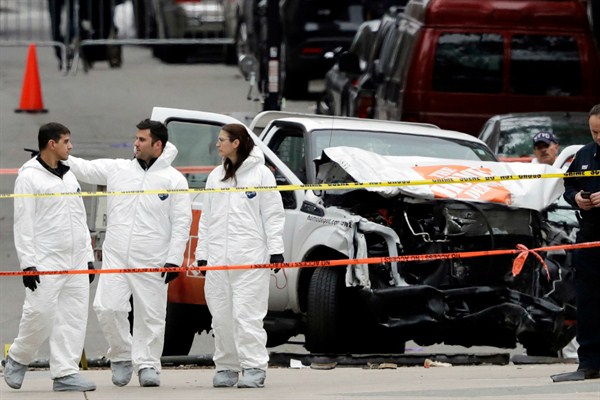During a January talk in Israel, retired Gen. David Petraeus, the former CIA director, warned that the world had entered an age of the “weaponization of everything.” What he meant was that weapons are no longer simply the traditional tools of war—guns, missiles, warplanes, naval ships and so forth—but everyday objects that can be adapted to damage, destroy or kill. Think, for instance, of the hijacked airliners in the Sept. 11 attacks, the increasingly common use of trucks and cars for terrorism, and the kinds of aggressive information warfare conducted through cyberattacks and disinformation campaigns that exploit “fake news” and vulnerabilities on social media.
This idea of the “weaponization of everything” has gained a foothold among security experts, but so far it has not drawn the attention of the American public and its elected leaders. This is worrisome and may leave the United States unprepared for an intricately dangerous future.
One of the best analyses of the weaponization of everything is in “The Future of Violence,” a 2015 book by Benjamin Wittes and Gabriella Blum. “Modern technology,” they write, “enables individuals to wield the destructive power of states. Individuals ... can potentially be attacked with impunity from anywhere in the world ... new technologies are able to generate and channel mass empowerment, allowing small groups and individuals to challenge states and other institutions of traditional authority in ways that used to be the province only of other states. They are growing increasingly cheap and available. They defy distance and other physical obstacles. And, ultimately, they create the world of many-to-many threats, a world in which every individual, group, or state has to regard every other individual, group, or state as at least a potential security threat.”

